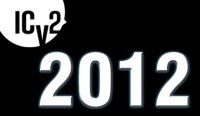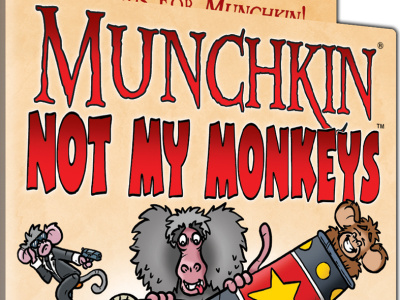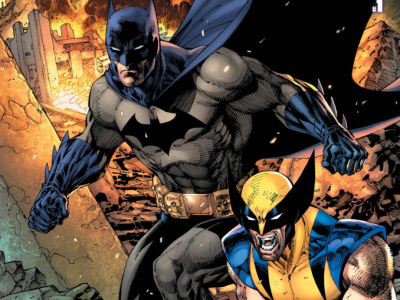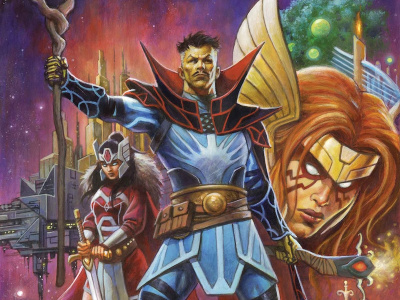
This is our list of the most important events in the hobby games business in 2012. We based that ranking on the impact on the economics of the business. We don’t do year-end lists every year, and when we do, we don’t always make the same kind of list, so let us know what your Top Ten list is and why, and what you think of this kind of year end list.
1. Hobby Games Up a Lot (As Videogames Decline)
Hobby game sales in 2012 continued the strong growth we’ve been seeing for several years, as videogame sales continued to slide. Hobby games grew 20-25% in 2011 (see "Hobby Games Grow 20-25%") and through the early fall, the growth rate appeared to be similar in 2012 (see "'Fantastic Summer for Hobby Games'"). Changes in leisure time activities are feeding the growth, as videogames continued to decline in 2012 (see "THQ Files Bankruptcy"). The net effect is what a number of insiders are comparing to the Pokemon boom era around 2000, but with the difference that sales are good across the board rather than dependent on a single title.
2. Kickstarter Becomes a Major Force in Hobby Games
When a Website can help game creators or publishers finance production and sell directly to the most passionate customers, you’d think it would be a negative for stores, but exactly the opposite appears to be happening. Kickstarter is bringing in new customers for publishers while sales of Kickstarter-funded projects through stores are also brisk. The range of game products funded by Kickstarter is impressive, ranging from RPGs (Monte Cook’s Numenera raised over $500,000, see "Monte Cook's New RPG at Over $300K"), to board games (Sedition Wars and Ogre both raised nearly $1 million, see "'Sedition Wars'" and "'Ogre' Print Run Will Be Over 10,000"), to miniatures (Reaper raised $3.4 million, the third largest Kickstarter ever, see "Reaper Kickstarter Raises $3.4 Million"). Kickstarter first banned retailer rewards, with potentially a significant effect on game projects, then just limited them (see "Kickstarter Backs Down").
3. Tabletop Becomes Huge Sales Driver
Publishers reported that an appearance on the Geek and Sundry Youtube series TableTop, starring Wil Wheaton, could cause up to a quintupling of sales in the short run and a doubling of sales over the long term (see "Fantastic Summer for Hobby Games"). That’s a major force, and adds sales that appear to be incremental increases to the market.
4. Licensing Drives Game Sales
Licensing has always been important to hobby game sales, but the differences now seem to be both the strength of the properties with which games are associated, and the scale of the licensed game product ranges. For example, The Hobbit: An Unexpected Journey is setting records, and Cryptozoic has six games based on the Hobbit and Lord of the Rings films (see "Six 'Hobbit' and 'LOTR' Games"), with Fantasy Flight Games, Games Workshop, and others also producing Hobbit or The Lord of the Rings products. The Walking Dead was the #1 show in the 18-49 demographic this fall on either cable or broadcast, and two associated games, Cryptozoic’s based on the TV show and Z-Man’s based on the comics, were both sold out repeatedly in 2012. The Avengers and The Dark Knight Rises, the top two movies of 2012, were both the focus of WizKids products (see "'Avengers' Movie HeroClix'" and "WizKids' 'The Dark Knight Rises' Program”). Fantasy Flight Games launched its Star Wars X-Wing Miniatures Game (see "'Star Wars X-Wing Miniatures Game'") and announced the Star Wars RPG (see "'Star Wars RPG'"). Bandai launched Uncharted, based on the videogame (see "’Uncharted' Board Game from Bandai"), continued its Star Trek and Resident Evil programs (see "'Resident Evil,' 'Star Trek'"), and announced a new card game based on Power Rangers.
5. Magic: The Gathering Is the Largest Game Brand
It’s not a 2012 event that Magic is growing--it’s been on fire for several years. But what is new is the scale of its success; Hasbro CEO Brian Goldner announced in February that the company believes that Magic: The Gathering is now the largest game brand in the U.S. (see "'Magic' the 'Largest Game Brand'"). And sales have been continuing to grow since he made that announcement.
6. New D&D Edition Coming; Reprints in the Meantime
Wizards of the Coast announced that the granddaddy of all hobby game brands, Dungeons and Dragons, was up for a reboot, shaped by an extended playtesting period (see "'D&D 5.0'"). The new edition will be different enough that it’s now got a name (D&D Next) instead of an edition number, and will likely not be released until 2014 (see "The 'D&D Next' Keynote"). In the run-up, WotC is doing a lot to keep the brand visible, including a charity release of the original AD&D releases, reprints of the 3.5E products, and a digital release of the entire D&D archive.
7. High-powered TCG Launches
We’ve seen a number of well-supported TCG releases over the last few years, but 2012 brought us two games that have more behind them than anything in recent memory. Wizards of the Coast launched Kaijudo, a new game based on its highly successful and long-lived Duel Masters property from Japan, and is promising a multi-year program to support the launch (see "Greg Leeds on the 'Kaijudo' Launch"). And Bushiroad brought Cardfight!! Vanguard, which was noticeably leaking into North America in 2011, to the U.S. for a full launch in 2012, with a local presence to support it and a long term commitment (see "'Cardfight!! Vanguard' Expands in U.S."). Cardfight!! Vanguard is another game with a strong history in Japan, where it was #3 behind Yu-Gi-Oh! and Duel Masters within the first year after release. While neither of these games is a guaranteed success in the North American market, which has been notably inhospitable to new TCG brands over the past few years, the scale of their support and pedigrees gives them a better shot than most.
8. 4Kids Assets Sold to Konami, Saban
When 4Kids went into bankruptcy in the midst of litigation with Yu-Gi-Oh! owner Konami in 2011 (see "4Kids Files Chapter 11"), things looked bleak for settling all the issues without major disruption to the TV and other support for the #2 TCG brand in the hobby market. But the litigation was settled; Konami acquired 4Kids’ assets related to Yu-Gi-Oh! (see "Court Approves Splitting 4Kids"), and Saban, which acquired 4Kids’ programming block on the CW, is airing Yu-Gi-Oh! on its rebranded Vortexx block (see "'YGO!,' Big Two, WWE"). In the process Konami set up a New York office using 4Kids’ space and some of the employees to handle the anime and product licensing for Yu-Gi-Oh!. All was accomplished with a rather seamless transition, a big win for Konami and the market.
9. Mayfair Goes Exclusive
The trend toward exclusive distribution deals is longstanding, but this was a big one. Mayfair, which controls the North American rights to the #1 brand in hobby board games in Settlers of Catan, went exclusive with Alliance Game Distributors (and Diamond Comic Distributors), eliminating its sales through other distributors (see "Mayfair Games Goes Exclusive with Alliance"). The dollar shift to Alliance from other distributors was significant, and the move gives the company an even bigger share of the top-selling games. Mayfair also consolidated its distribution in the United Kingdom and South Africa with single distributors (see "Mayfair Taxes Exclusivity International").
10. Piracy Hits 3-D Objects
Makers of plastic miniatures faced a new challenge in 2012, with the first documented case of a miniature game company issuing a takedown notice for a 3-D printer file (the company was Games Workshop, see "Games Workshop Cracks Down on Homemade Figures"). With 3-D printers hitting prices as low as $1000, the ability for fans to duplicate plastic game miniatures is proliferating. While the impact is nascent for now, it could become significant in the coming years.
2. Kickstarter Becomes a Major Force in Hobby Games
When a Website can help game creators or publishers finance production and sell directly to the most passionate customers, you’d think it would be a negative for stores, but exactly the opposite appears to be happening. Kickstarter is bringing in new customers for publishers while sales of Kickstarter-funded projects through stores are also brisk. The range of game products funded by Kickstarter is impressive, ranging from RPGs (Monte Cook’s Numenera raised over $500,000, see "Monte Cook's New RPG at Over $300K"), to board games (Sedition Wars and Ogre both raised nearly $1 million, see "'Sedition Wars'" and "'Ogre' Print Run Will Be Over 10,000"), to miniatures (Reaper raised $3.4 million, the third largest Kickstarter ever, see "Reaper Kickstarter Raises $3.4 Million"). Kickstarter first banned retailer rewards, with potentially a significant effect on game projects, then just limited them (see "Kickstarter Backs Down").
3. Tabletop Becomes Huge Sales Driver
Publishers reported that an appearance on the Geek and Sundry Youtube series TableTop, starring Wil Wheaton, could cause up to a quintupling of sales in the short run and a doubling of sales over the long term (see "Fantastic Summer for Hobby Games"). That’s a major force, and adds sales that appear to be incremental increases to the market.
4. Licensing Drives Game Sales
Licensing has always been important to hobby game sales, but the differences now seem to be both the strength of the properties with which games are associated, and the scale of the licensed game product ranges. For example, The Hobbit: An Unexpected Journey is setting records, and Cryptozoic has six games based on the Hobbit and Lord of the Rings films (see "Six 'Hobbit' and 'LOTR' Games"), with Fantasy Flight Games, Games Workshop, and others also producing Hobbit or The Lord of the Rings products. The Walking Dead was the #1 show in the 18-49 demographic this fall on either cable or broadcast, and two associated games, Cryptozoic’s based on the TV show and Z-Man’s based on the comics, were both sold out repeatedly in 2012. The Avengers and The Dark Knight Rises, the top two movies of 2012, were both the focus of WizKids products (see "'Avengers' Movie HeroClix'" and "WizKids' 'The Dark Knight Rises' Program”). Fantasy Flight Games launched its Star Wars X-Wing Miniatures Game (see "'Star Wars X-Wing Miniatures Game'") and announced the Star Wars RPG (see "'Star Wars RPG'"). Bandai launched Uncharted, based on the videogame (see "’Uncharted' Board Game from Bandai"), continued its Star Trek and Resident Evil programs (see "'Resident Evil,' 'Star Trek'"), and announced a new card game based on Power Rangers.
5. Magic: The Gathering Is the Largest Game Brand
It’s not a 2012 event that Magic is growing--it’s been on fire for several years. But what is new is the scale of its success; Hasbro CEO Brian Goldner announced in February that the company believes that Magic: The Gathering is now the largest game brand in the U.S. (see "'Magic' the 'Largest Game Brand'"). And sales have been continuing to grow since he made that announcement.
6. New D&D Edition Coming; Reprints in the Meantime
Wizards of the Coast announced that the granddaddy of all hobby game brands, Dungeons and Dragons, was up for a reboot, shaped by an extended playtesting period (see "'D&D 5.0'"). The new edition will be different enough that it’s now got a name (D&D Next) instead of an edition number, and will likely not be released until 2014 (see "The 'D&D Next' Keynote"). In the run-up, WotC is doing a lot to keep the brand visible, including a charity release of the original AD&D releases, reprints of the 3.5E products, and a digital release of the entire D&D archive.
7. High-powered TCG Launches
We’ve seen a number of well-supported TCG releases over the last few years, but 2012 brought us two games that have more behind them than anything in recent memory. Wizards of the Coast launched Kaijudo, a new game based on its highly successful and long-lived Duel Masters property from Japan, and is promising a multi-year program to support the launch (see "Greg Leeds on the 'Kaijudo' Launch"). And Bushiroad brought Cardfight!! Vanguard, which was noticeably leaking into North America in 2011, to the U.S. for a full launch in 2012, with a local presence to support it and a long term commitment (see "'Cardfight!! Vanguard' Expands in U.S."). Cardfight!! Vanguard is another game with a strong history in Japan, where it was #3 behind Yu-Gi-Oh! and Duel Masters within the first year after release. While neither of these games is a guaranteed success in the North American market, which has been notably inhospitable to new TCG brands over the past few years, the scale of their support and pedigrees gives them a better shot than most.
8. 4Kids Assets Sold to Konami, Saban
When 4Kids went into bankruptcy in the midst of litigation with Yu-Gi-Oh! owner Konami in 2011 (see "4Kids Files Chapter 11"), things looked bleak for settling all the issues without major disruption to the TV and other support for the #2 TCG brand in the hobby market. But the litigation was settled; Konami acquired 4Kids’ assets related to Yu-Gi-Oh! (see "Court Approves Splitting 4Kids"), and Saban, which acquired 4Kids’ programming block on the CW, is airing Yu-Gi-Oh! on its rebranded Vortexx block (see "'YGO!,' Big Two, WWE"). In the process Konami set up a New York office using 4Kids’ space and some of the employees to handle the anime and product licensing for Yu-Gi-Oh!. All was accomplished with a rather seamless transition, a big win for Konami and the market.
9. Mayfair Goes Exclusive
The trend toward exclusive distribution deals is longstanding, but this was a big one. Mayfair, which controls the North American rights to the #1 brand in hobby board games in Settlers of Catan, went exclusive with Alliance Game Distributors (and Diamond Comic Distributors), eliminating its sales through other distributors (see "Mayfair Games Goes Exclusive with Alliance"). The dollar shift to Alliance from other distributors was significant, and the move gives the company an even bigger share of the top-selling games. Mayfair also consolidated its distribution in the United Kingdom and South Africa with single distributors (see "Mayfair Taxes Exclusivity International").
10. Piracy Hits 3-D Objects
Makers of plastic miniatures faced a new challenge in 2012, with the first documented case of a miniature game company issuing a takedown notice for a 3-D printer file (the company was Games Workshop, see "Games Workshop Cracks Down on Homemade Figures"). With 3-D printers hitting prices as low as $1000, the ability for fans to duplicate plastic game miniatures is proliferating. While the impact is nascent for now, it could become significant in the coming years.







